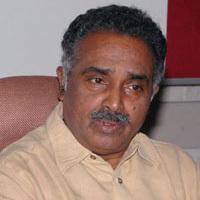A Bill introduced by Congress MP from Thiruvananthapuram, Shashi Tharoor, has given hope to millions of Indian foreign nationals of acquiring dual citizenship. However, the data together with experts suggest that it is less than likely to become a reality amid current practices.
Former Secretary General of Indian Parliament's Lower House PDT Achary told SBS Malayalam that the House, or Lok Sabha, has not passed a single Private Member’s Bill in many decades.
Data from PRS Legislative Research – a Delhi based institute researching on the Indian parliament proceedings – also reveals that no Private Member’s Bill has been passed into law since 1970.
“Till date, Parliament has passed 14 Private Members’ Bills. Six of these were passed in 1956 alone”, says a study report by PRS
The Upper House, or Rajya Sabha, had passed a Private Member’s Bill in 2015 – after a gap of 36 years – to ensure equal rights to transgender persons, but it didn’t go through the Lower House. Instead, the government introduced another Bill on the same issue.
“It is very, very unlikely for a Private Member’s Bill to pass the Parliament. It may be debated in the House, but most often will be defeated or withdrawn”, PDT Achary said.
Shashi Tharoor, a former Minister of State for External Affairs in India, introduced the Bill in the first week of July to amend the constitution of India to allow dual citizenship.
“We have the largest diaspora in the world, many of whom have migrated abroad for better opportunities. Taking a foreign passport for convenience does not make them any less Indian,” said Mr Tharoor after introducing the Bill.
According to current law, any person of Indian origin should renounce their Indian citizenship when they acquire foreign citizenship.
Chance of debate is also less
Any Member of Parliament (MP) – either Upper or Lower House – can introduce a Bill. When a Bill is introduced by an MP who is not a Minister in the Union Cabinet, it is called a Private Member’s Bill.
When a minister introduces a Bill, it is called a Government Bill.
Mr Achary said that dozens of Private Member’s Bills are introduced in each session of the Parliament, but very few of them are debated.
“When there is an important issue, it gives an opportunity for any member to bring that to the attention of the House and to the nation. Beyond that, they generally don’t get anywhere.” He explained that Private Member’s Bills are discussed on Friday afternoons only when Parliament sessions are on.
He explained that Private Member’s Bills are discussed on Friday afternoons only when Parliament sessions are on.

PDT Achary, former Secretary General, Lok Sabha Source: Twitter/PDT Achary
“The priority for discussion is decided by a ballot system. Sometimes the discussion can go on for many Fridays, so very few Private Members Bills are discussed in each Parliament”, Mr Achary pointed out.
PRS data from the last two decades show that more than 90 per cent of Private Member’s Bills lapse without a debate.
“In the 13th Lok Sabha (1999-2004) 343 Private Member’s Bills were introduced but only 17 were discussed. In the 14th Lok Sabha (2004-2009) only 14 of the 328 bills were discussed.”
As per this report, of the 372 bills introduced in the 15th Lok Sabha from 2009-2014, only 11 were discussed.
Mr Achary also made it clear that the Bill introduced by Shashi Tharoor MP may not be even debated in Parliament considering the ballot procedure and the volume of bills introduced in each session.
Narendra Modi's BJP government in India hasn’t yet clarified its stance on this demand of dual citizenship. In the 15th edition of Pravasi Bharathiya Divas held early this year many Non-Resident Indians raised this issue.
However, the previous Congress-led UPA government, in which Shashi Tharoor was a minister, had taken a stand that dual citizenship for Indians was not feasible.
Vayalar Ravi, the then cabinet minister for Overseas Indian Affairs told SBS Radio during the Regional Pravasi Bharathiya Divas held in Sydney in 2013 that “it (giving dual citizenship) is impossible.”
“India has more than 1.2 billion population already, and dual citizenship doesn’t serve any purpose there. It is not a simple process either,” he said.



